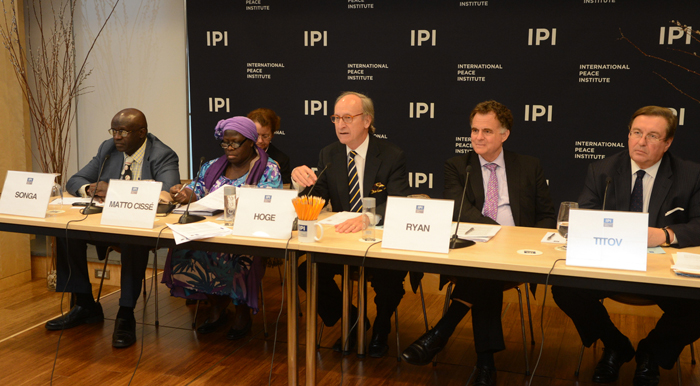
The rule of law is a fundamental building block for realizing rights, holding perpetrators accountable, and ensuring long-term peace and development, though more international support is needed to re-establish the rule of law in crisis-affected states. These were the key takeaways from a policy forum held at the International Peace Institute on October 25th.
Organized with the United Nations Development Programme (UNDP) and the Department of Peacekeeping Operations (DPKO), the event featured senior officials from Côte d’Ivoire and the Democratic Republic of the Congo (DRC), who shared their experiences of re-establishing the rule of law.
As the UN attempts to harmonize its support to the rule of law in crisis-affected countries, participants also heard from UNDP and DPKO, who make up the new UN Global Focal Point for police, justice, and corrections.
Participants emphasized a number of key points:
1. Laws are a starting point for realizing rights. In practice, re-establishing the rule of law also requires basic security. The Congolese government has now passed laws to criminalize torture, protect citizens from sexual violence, and prevent the use of children in armed conflict. But armed groups continue to threaten the state’s authority over parts of the country. And concrete action remains vital, particularly to prevent sexual- and gender-based violence.
2. An effective justice system does not only need to be independent, it also needs to be credible and inspire confidence. To this end, perpetrators of crimes committed during conflict need to be brought to justice regardless of their political affiliation. In Côte d’Ivoire, a central agency has carried out preliminary investigations into crimes committed during the post-election violence, and the first trials are expected to take place before the end of the year.
3. The rule of law is vital for peace, but it is also necessary for a business-friendly environment, to ensure investment and long-term economic development. At the same time, while poverty persists, governments need to work to ensure that judicial systems are accessible to all, including the most vulnerable.
4. Land issues present a formidable challenge for the rule of law in Côte d’Ivoire, the DRC, and beyond. As refugees return, disputes over land rights need to be addressed quickly. Restorative justice mechanisms and reconciliation initiatives may need particular attention in this regard.
![]() Download this text as a meeting brief
Download this text as a meeting brief
Watch the event video:







